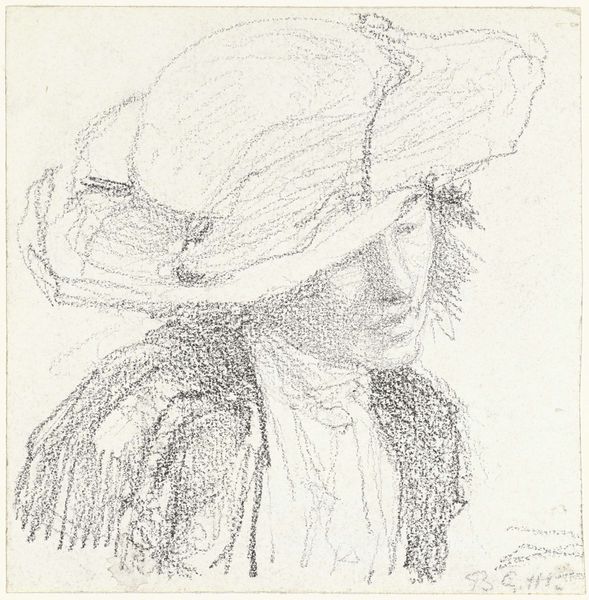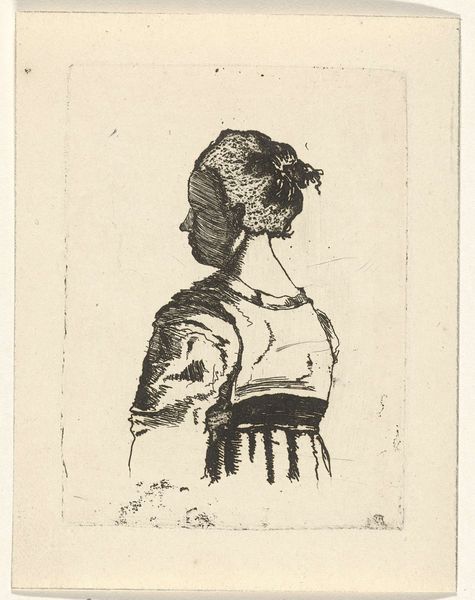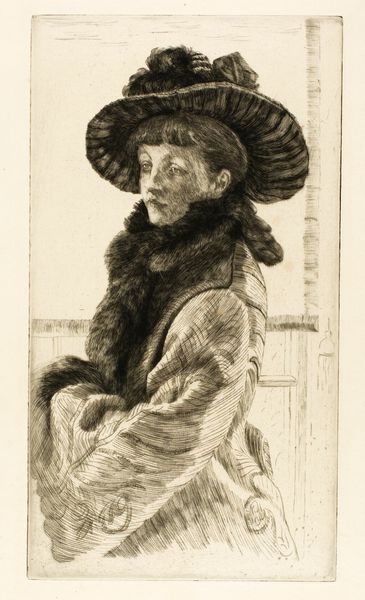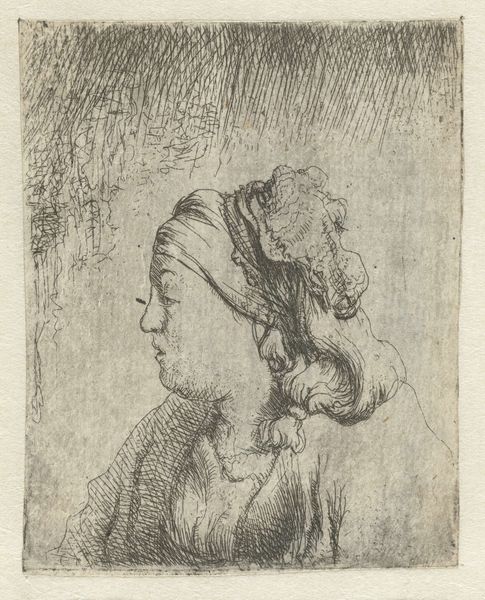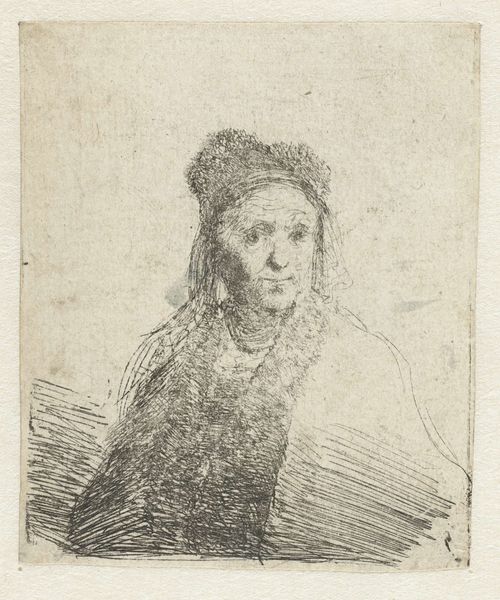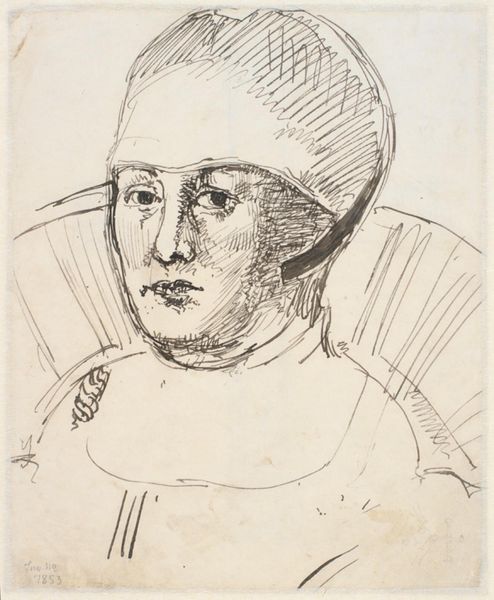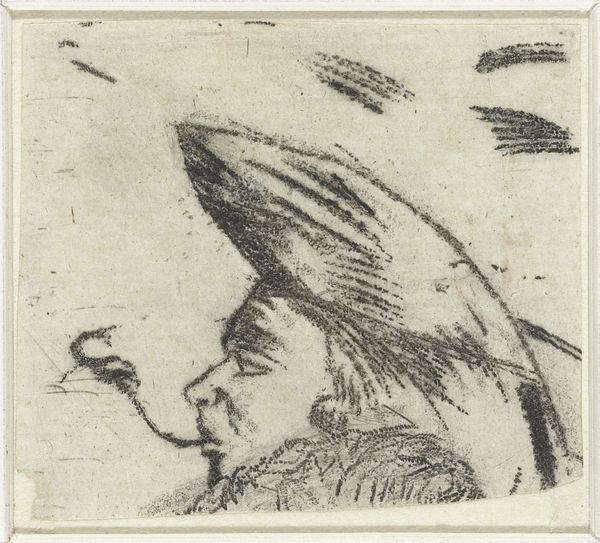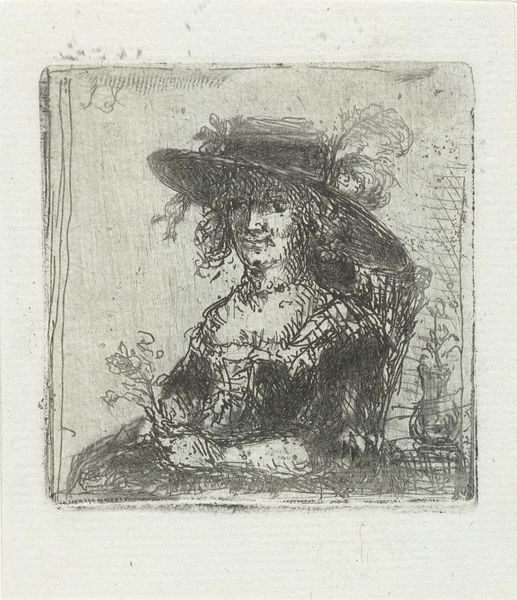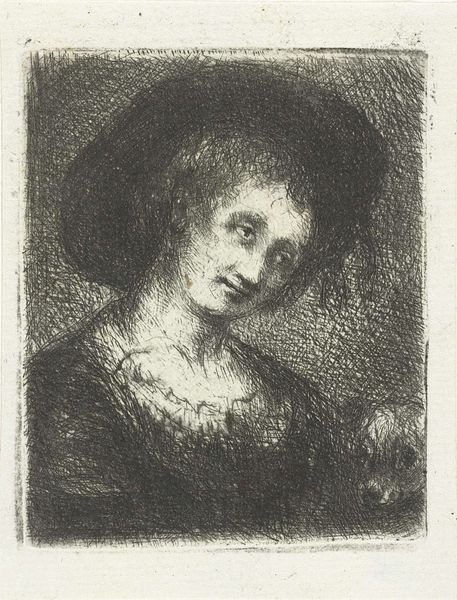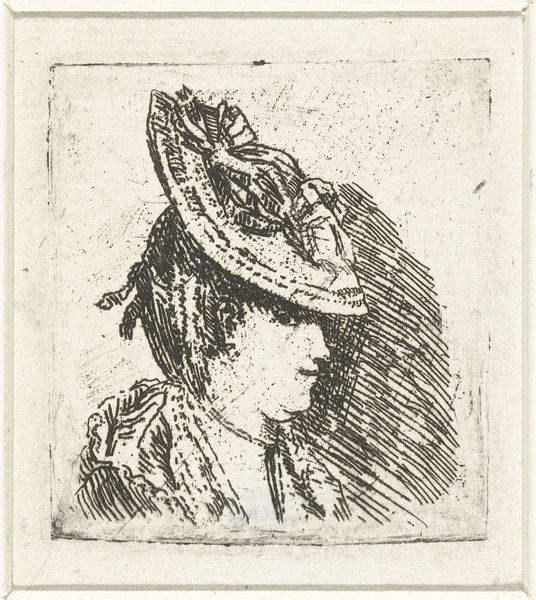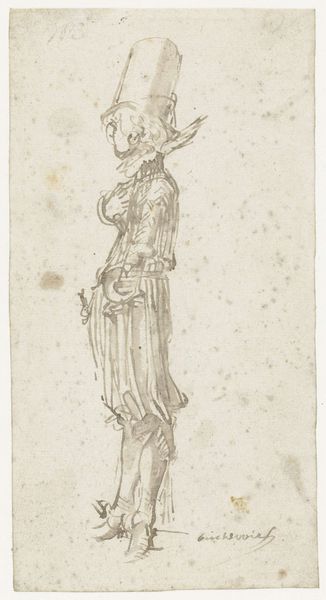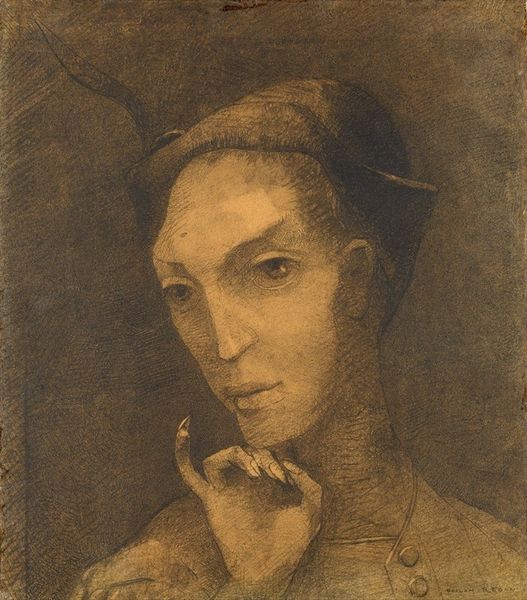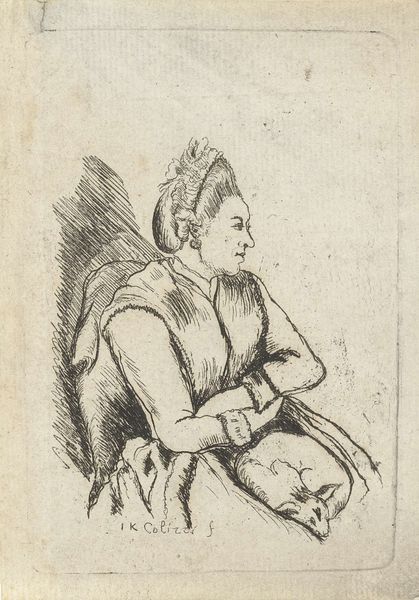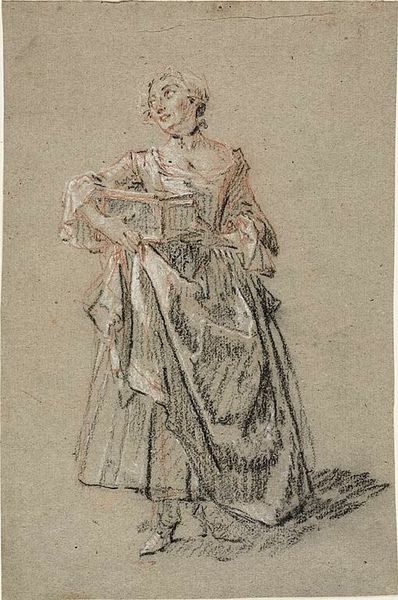
#
portrait
#
pencil drawn
# print
#
figuration
#
portrait drawing
#
history-painting
Copyright: National Gallery of Art: CC0 1.0
Editor: This is Bernard Reder’s "Pantagruel: Chapter XVII," a print work. The figure depicted looks very stoic and powerful. I’m really struck by the historical clothing and how that speaks to themes of wealth, class, and social standing. How do you interpret this work, especially considering its possible ties to history painting? Curator: It's compelling, isn’t it? The choice of "Pantagruel" connects us to Rabelais's satirical critique of 16th-century French society, a commentary on power and social absurdities. The woman’s ornate attire—the elaborate headdress, jewelry—those weren't just fashion statements. They signified a rigid social hierarchy. What does that emphasis on ornamentation say about the societal constraints placed on women of that era? Editor: That’s a great point! It's like she is burdened by the weight of societal expectations and roles. How does that relate to the choice of medium, the print? Curator: Precisely! Printmaking makes the image more accessible and challenges the notion of a singular, precious artwork reserved for the elite. Could the artist be democratizing this image of power? Questioning who gets to be represented and how? Think about how visual representation intersects with social justice movements today. Editor: I see. So Reder isn't just portraying a historical figure, but actively commenting on issues of class, gender, and representation through the lens of history. That's such an interesting idea. Curator: Exactly! And perhaps this print serves as a starting point to explore these issues further. Art becomes a catalyst, inviting dialogue and critical engagement with societal structures. It seems Reder aimed to ignite those very dialogues through his art. Editor: That really opens up my understanding. It's much more layered than I initially thought. Thank you. Curator: My pleasure. It's in these conversations that we breathe new life into art.
Comments
No comments
Be the first to comment and join the conversation on the ultimate creative platform.
